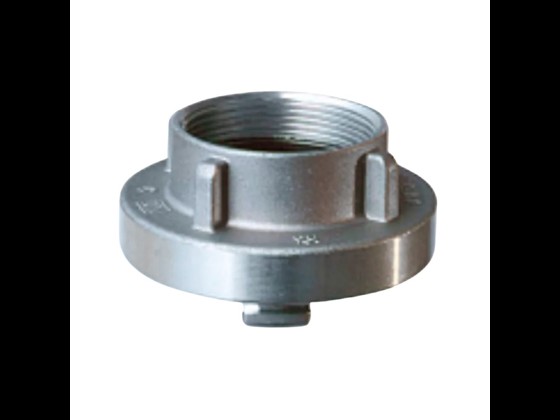
Storz coupling, fixed, stainless
Stainless steel, female BSPP thread
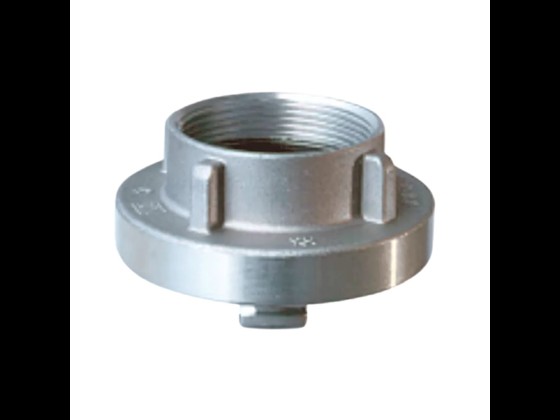
Storz coupling, fixed, aluminium
Gasket in FKM, female BSPP thread

Storz coupling, swivel, stainless
Female BSPP thread, maks 16 bar

Storz coupling, swivel, aluminium
Female BSPP thread, maks 16 bar

Storz coupling, rifled hose tail, aluminium
Swivel, max. 16 bar, gasket in NBR
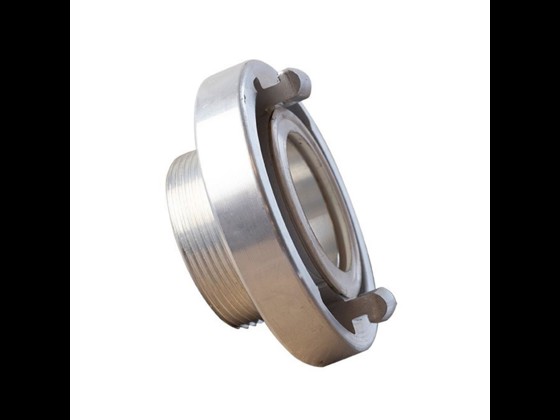
Storz coupling, fixed, stainless
Male BSP thread, max. 16 bar
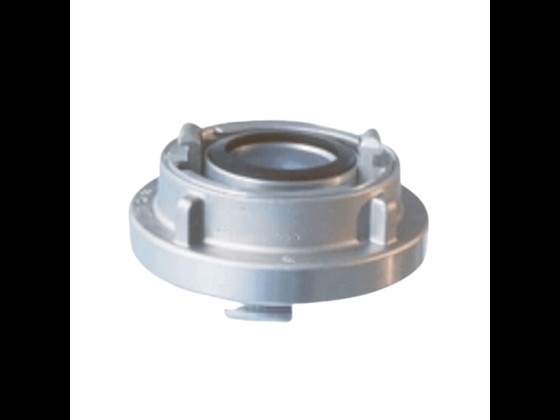
Storz coupling reducer, fixed
Stainless steel or aluminum, internal BSP thread
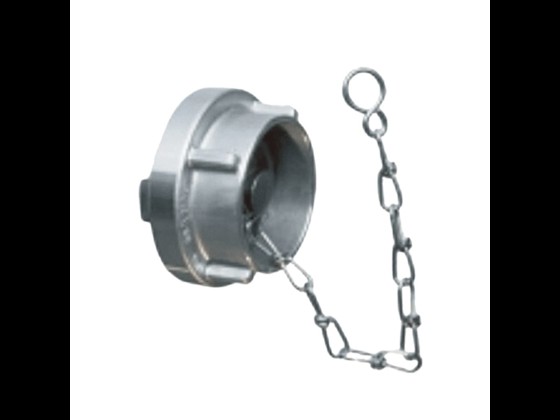
Storz end cover
Available in stainless steel or aluminum
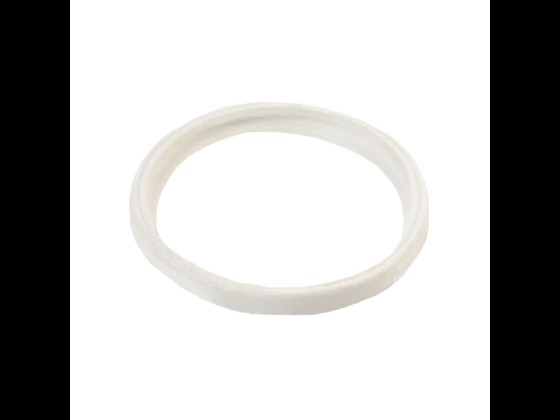
Storz profile gasket
NBR or silicone, FDA-approved
Storz couplings: Features, benefits and applications
Storz couplings (also known as Storz hose couplings) are a pioneering solution for industrial connection systems that increase both safety and efficiency in the process industry. With their unique design that enables quick connection and disconnection, Storz couplings help reduce downtime and improve overall productivity in complex production processes.
What are Storz couplings?
Storz couplings are indispensable in the process industry as they ensure reliability and efficiency. These couplings are designed to create tight and quick connections, making them ideal for the transport and distribution of liquids and gases. Especially in chemical plants, where safe handling is of paramount importance, Storz couplings are indispensable as they ensure that no leaks occur, reducing the risk of hazardous spills.
In addition, they can withstand high pressures and temperatures, making them suitable for demanding industrial environments. In the food industry, their ability to enable quick changes between production lines is invaluable. This not only minimises the risk of contamination, but also increases production capacity by saving time during changeovers. Their versatility and reliability make them the preferred choice for many companies looking to optimise their operational processes.
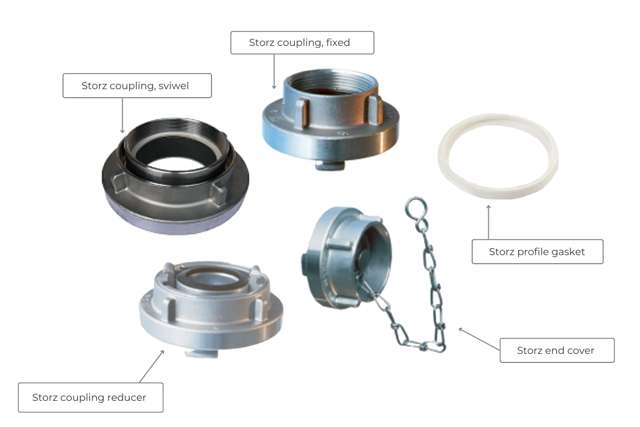
Applications in the process industry
Storz couplings are essential in the process industry as they combine reliability and efficiency. They are designed to create tight and quick connections, making them ideal for the transport and distribution of liquids and gases. Especially in chemical plants, where safe handling is crucial, Storz couplings – particularly the stainless steel Storz coupling – are essential for preventing leaks and ensuring safety.
In addition, they can withstand high pressures and temperatures, making them ideal for demanding industrial environments. In the food industry, their ability to enable a quick change between production lines is a major advantage. Here, the Storz coupling demonstrates its versatility by enabling a smooth changeover without long downtimes.
How to identify the best Storz coupling for your needs
Area of application and environment. Especially in hygienic areas, the stainless Storz coupling is preferred as it has a very high corrosion resistance and is particularly easy to clean.
In addition, you should ensure that the Ka distance of the couplings – the dimension that defines compatibility – matches your existing systems. To meet different requirements, we offer fixed Storz couplings in stainless steel, fixed Storz couplings in aluminium, swivel Storz couplings in stainless steel and swivel Storz couplings in aluminium.
Our swivel Storz couplings prevent unnecessary twisting of hoses and pipes during connection, reduce the load on the coupling and minimise the risk of damage to the hose or pipe. Their versatile construction makes them easy to adapt to different hose and pipe sizes in various industrial applications.
Accessories to consider
As mentioned, Storz couplers are connected using a suitable bracket. If the couplings have different sizes, coupling adapters can be used to switch from one Ka-spacing to another. Our Storz coupling reducer, fixed serves as the ideal transition piece.
How we can assist you
We offer a comprehensive range of Storz couplings and accessories to meet your industrial needs. Our experts are ready to advise you on choosing the right coupling and accessories for your specific application. We deliver high-quality products and ensure you get the right solution.
Contact us now by phone +45 7020 0422 or via inquiry@alfotech.eu for professional advice.
Frequently asked questions

Are Storz couplings standardized?
Yes, there are international standards for Storz couplings. Typical sizes range from 25 mm (1 inch) to 150 mm (6 inches) in diameter.
Is there a difference between Storz couplings for the chemical and food industry?
Storz couplings for the chemical and food industries differ primarily in material selection and hygiene requirements, where the food industry requires stainless steel and approved seals for food contact, while the chemical industry uses chemical-resistant materials. In addition, couplings for the food industry must meet strict hygiene and cleaning requirements, while the chemical industry focuses on chemical resistance and safety in explosive environments.
What is the advantage of a Storz coupling in stainless steel?
The Storz coupling in stainless steel is particularly durable, corrosion-resistant and ideal for hygienic or aggressive environments.
 da
da
 de
de
 en
en
 sv
sv